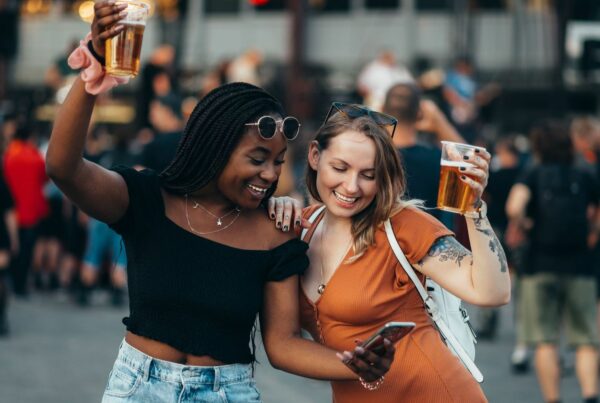With summer just around the corner, many are planning their vacations around the event or festival they will be attending. After the pandemic, since events are back to what they used to be, users expect unique experiences and organizers will do everything they can to get the public to connect with their brand. When we talk about the success of an event we go over factors such as logistics, location, security or technology, among others. However, today we will focus on communication and event marketing as a key factor to attract and engage the public. Achieving success depends on how you communicate with your target audience, it is the definitive step for a good event organization.
What is event marketing?
Event marketing refers to all the techniques, tools and channels used to bring the event closer to its audience and convert them into attendees. It seeks to increase brand recognition and establish closer connections between attendees, promoters and suppliers. With this strategy the objective is to achieve the top of mind to consolidate the brand and build a community among the audience, with a loyal audience;
What are the benefits for your company?
Event marketing brings great value to both the organizing company and the attendees. We will highlight some of the benefits depending on the main objective of the event:
- Establish solid relationships with customers.
- Helps introduce a new product to the market.
- Promote the update of an existing product or service.
- Improve brand image.
- Convert leads into sales.
- Create networking among professionals.
- Generate business opportunities.
Event marketing strategy
Each event is unique and unrepeatable, there is no mathematical formula to guide us when creating a successful marketing strategy, but there are some basic and important principles when establishing the strategy. Before we start, we should ask ourselves the following questions:
Objectives and audiences, where to start?
What is the main objective of the event? Who is my ideal audience? These are the first questions to ask when making an effective event marketing strategy. For example, if the goal of the organizers or promoters is to increase the average ticket per entry at a music festival, your buyer persona will be the fans of the invited music artists.
The more we understand the needs and behaviors of the target audience, the more effective event marketing strategies will be.
Which timeline should be taken into account?
Timing when breaking down the strategy for an event is key. Efforts, marketing channels and techniques will not be the same depending on the phase your event is in. We can break down event marketing strategies into four phases:
- Pre-event phase: time to make noise and reach our audience. This period starts before putting tickets on sale or registration to attend, and the main objective is that people get to know you;
- Launch phase: Gain brand visibility. It’s time to work with the press and carry out influencer marketing actions to present the event to target users.
- Registration closing phase: this is the time to bring out all your creativity. There is just a short time left before registration closes and you have to increase ticket sales or registration to the maximum.
It should be noted that during all these phases, the communication strategy on social networks must be constant and in line with the tone of the brand and the event. How you communicate your brand to the public or audience can make all the difference and build viewer loyalty. Here are some of the most effective actions or ideas for marketing your next event;
Examples of strategies to improve the marketing of your event
Once you have defined and researched your target audience and know the timings of your event, we will discuss some of the most effective event marketing strategies to make your next event a success.
Advance tickets or Early Bird
It consists of selling tickets at a lower price in the middle of the launch phase. Here plays a very important role the sensation of urgency to buy tickets before they go up in price or sell out. This marketing technique is very common in music festivals and serves to reach more people and get revenue in the early stages of the event.
Optimize organic and paid channels
It is no secret, if we want to increase the revenue of our event we have to reach more audience. To do this, from the first phase of the event, you should pay special attention to social networks, create an optimized website, take care of email marketing and invest in paid ads on Google.
There are many strategies and ideas for building effective event marketing strategies. The tips we have shared with you are basic to build a solid foundation, but how to go further? Technology and digitization of event processes are essential to collect data and turn it into insights that will help in making decisions to improve the attendees’ experience in the future;
In a nutshell
Now that you know the keys to define a successful event marketing strategy and reach the largest number of people in your target, it’s time to get down to work with all the rest of your planning and internal management. Now you can benefit from the advantages of business intelligence to know the consumption habits and behavior of attendees. Contact us and we will advise you on digitalization so that everything is under control.


